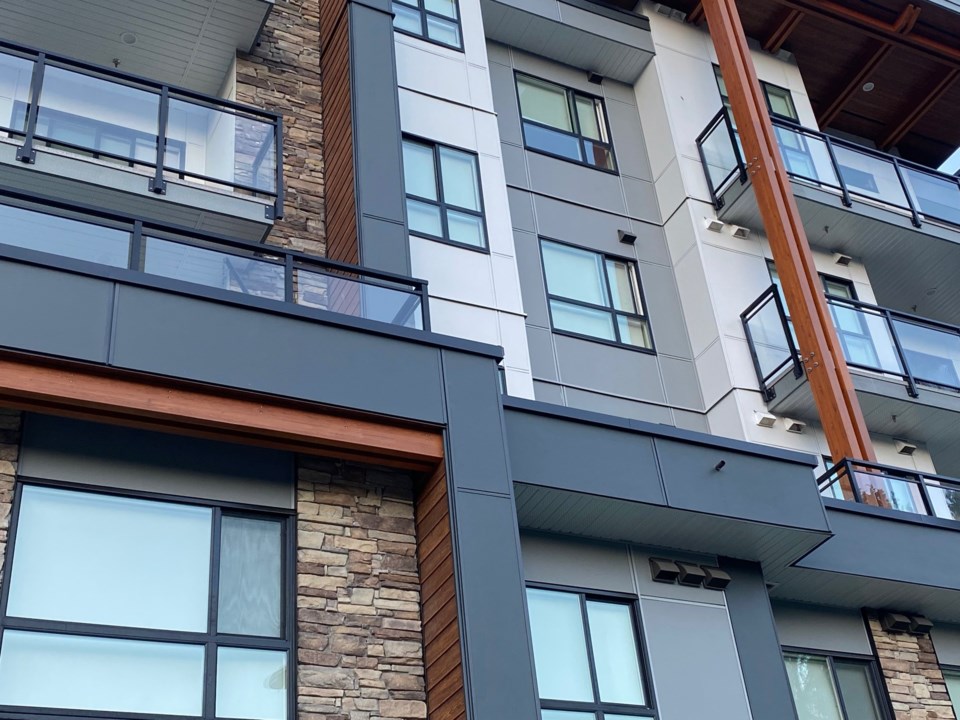B.C. landlords soon will have the government backing them if bad tenants skip out on rent and disappear into the wind.
Housing Minister Ravi Kahlon announced preliminary details on the “government-supported insurance program for rental suites” on X, Monday.
While most tenants and landlords have no issues, months of unpaid rent can be costly and discourage more supply of rental units, he added.
Details of the plan will follow in the next few months while it will be announced formally in the new year.
“We’re trying to address two major challenges,” Kahlon told the Optimist.
Some homeowners have suites that they don’t want to rent because they’re afraid of being scammed. As well, some landlords lose out on unpaid rent, even after the Residential Tenancy Branch rules in their favour, because the tenant can’t be located to repay.
“This insurance is essentially a backstop,” he said.
He pointed out that most landlords and tenants don’t have any issues.
The government will consult with LandlordBC as it rolls out the program.
“We have some fine tuning of the policy that needs to happen,” he said.
The government has to ensure the program is flexible but also prevents landlords from collecting rent and who then also try to claim from the insurance program.
The program will be optional for landlords but he expects many to sign on. A small premium will be charged although that remains to be determined because it’s not sure what kind of participation the voluntary program will take.
But based on what Kahlon said he has heard from LandlordBC, there will be a high participation rate.
The program will involve the Residential Tenancy Branch which will manage the program and require additional staffing and reimburse landlords for missing rent, if the tenants cannot be located or rent can’t be recovered.
The program will be launched in 2025 and the government will fund it to ensure that the program is being backstopped, he said.
“And again, this is the first of its kind in Canada,” Kahlon said. “We’re not aware of any jurisdiction in the country that has a similar program.”
Kahlon said he wouldn’t be surprised if other provinces follow suit and that he’s been listening to landlords across the province, whether they’re protesting or just having challenges.
He added though that hearing wait times at the Residential Tenancy Branch was a major issue for landlords, which has now been improved.
A rental insurance fund, with tenants paying the premiums, was one of the three main priorities for the Landlord Rights Association of B.C. when it demonstrated last March in front of Kahlon’s North Delta office.
The association also wanted to restore fixed-term tenancies with vacate clauses and to allow landlords to increase rents by the rate of inflation, plus two percent.
David Hutniak, CEO for LandlordBC, said the program addresses an issue the group has long been concerned about, such as when a tenant breaches an agreement and a landlord faces a long and costly process to evict an uncooperative tenant.
“Typically, in these situations, the landlord would have little hope of recovering these costs,” said Hutniak. Such costs were discouraging small landlords from renting out suites, “and in fact, pushing many out.”
He said the program is focused on landlords with four or fewer units, and will compensate landlords for related removal costs of a tenant, such as hiring a bailiff, removing belongings left behind, as well as outstanding rent.
However, damage to the rental suite wouldn’t be covered because that would be available through the landlord’s property insurance.
“We continue to advocate for support for our sector to ensure that it remains viable and in fact, grows, so that British Columbians have access to the housing they need,” Hutniak said. "We are pleased with this new measure but more needs to be done.”
Kahlon added that the new program works with the new Secondary Suite Incentive Program announced last April.
That’s a three-year pilot program in which homeowners can get a forgivable loan for half of the construction costs, to a maximum of $40,000, for installing a suite, if the suite is rented out at below market rates for five years.
So far, about 2,000 applications have been filed for that program. That means the government will meet its target of 1,000 units in the first year.
“If it’s a success, then why not, because this is a low-cost way of getting more housing available,” Kahlon said. “That program combined with this backstop insurance program … they work together to encourage more housing to come online.”




